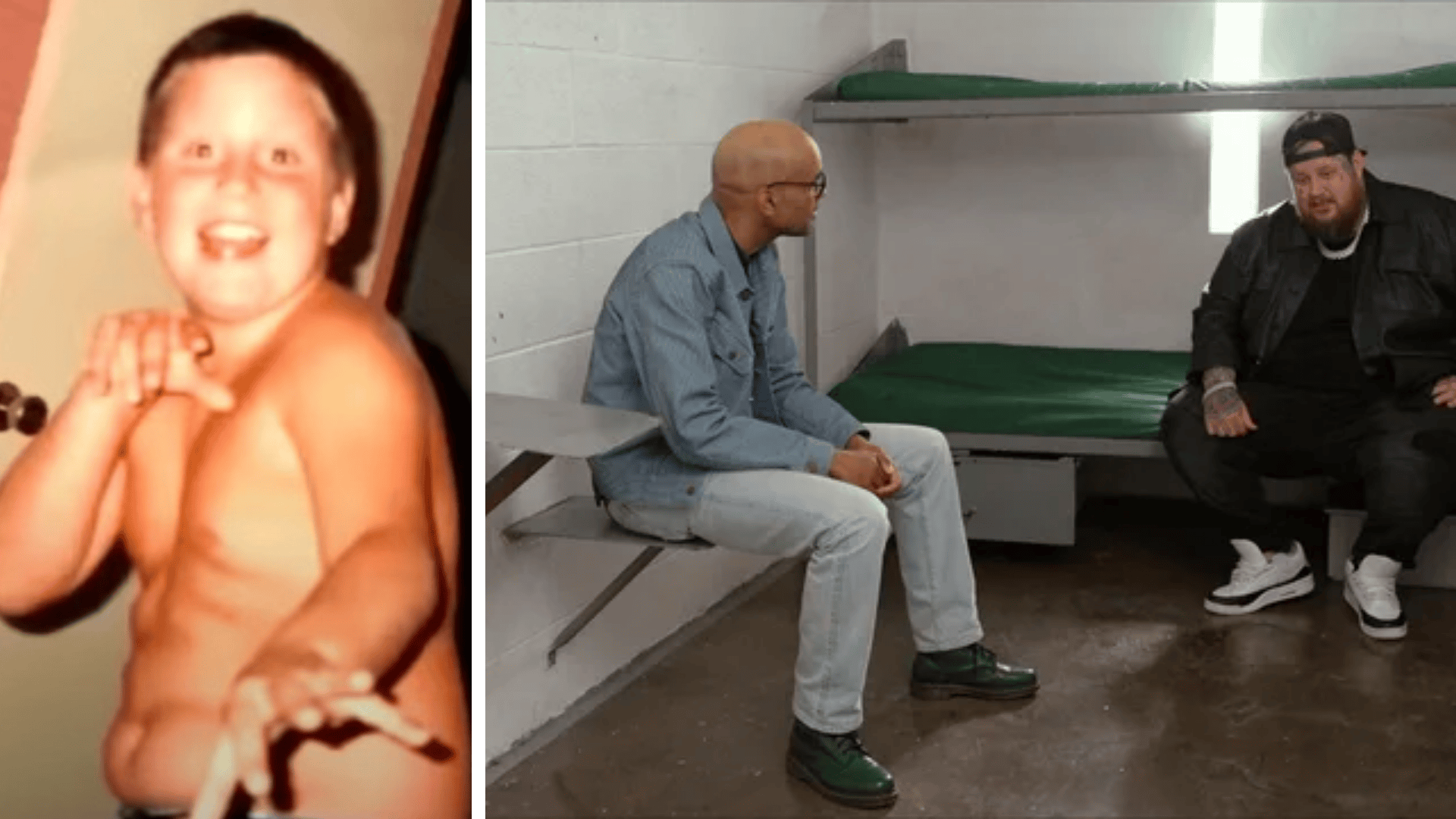Jelly Roll is a musician from Tennessee who mixes hip-hop, rock, and country into something raw and real. But before the stage, he spent nearly a decade in and out of prison.
His crimes? Aggravated robbery and drug-related charges that started when he was just a teenager.
Today, he’s known for music that speaks to struggle, redemption, and second chances.
So what was Jelly Roll in prison for, and how did he go from inmate to artist? Let’s break it down.
What Was Jelly Roll in Prison For?
Jelly Roll spent time behind bars mainly for aggravated robbery and drug crimes. At just 16 years old, he faced charges as an adult for aggravated robbery.
Throughout his teens and early twenties, he was arrested roughly 40 times for drug possession, dealing, and other offenses.
He cycled in and out of juvenile detention and adult prisons for almost ten years. His story is rooted in struggle, poor choices, and a system that tried him as an adult before he could even vote.
Why It Happened:
Several factors pushed him down this road:
- Tough home life: He grew up surrounded by poverty, addiction, and few chances to break out.
- Early crime and drugs: By his teenage years, he was already selling drugs and using them himself.
- Tried as an adult too soon: He was charged as an adult at 16, before he could legally rent an apartment, drink, or buy cigarettes. That label stuck and shaped his future in damaging ways.
Jelly Roll’s Criminal History Timeline
Here’s a quick timeline of the major turning points in Jelly Roll’s early life and legal troubles.
| Age (approx) | Event | Notes |
|---|---|---|
| 14 | First brush with law enforcement | He started getting arrested in juvenile facilities. |
| 16 | Charged as an adult for aggravated robbery | A turning point that changed everything. |
| Late teens–early 20s | Multiple arrests for drug possession and dealing | He estimates around 40 arrests during this period. |
| 23 | Earned GED behind bars | He used prison time to try and reset his life. |
| Post-mid 20s | Exit from prison systems and begin a music focus | He left the system and shifted toward a full-time music career. |
What Jail Was Really Like for Jelly Roll

Prison wasn’t just punishment for Jelly Roll; it became his normal. The strict routine, the fights, and the mental pressure shaped him in ways the outside world never could.
Environment & Challenges
For Jelly Roll, prison became more familiar than the outside world. He spent so much time locked up that the routine felt normal.
In some ways, the strict structure even felt safer than the chaos he knew before. But it wasn’t easy. He dealt with fights, constant tension, and the mental strain of survival.
Inmates created their own food combinations, which he called “ghetto dope,” just to make meals bearable.
During this time, he also faced his addiction head-on and started questioning who he really was and what he wanted from life.
A Turning Moment
Everything shifted when he learned he had a daughter. He was still behind bars at 24 when a guard delivered the news: “DeFord, you had a kid today.” That single moment hit him hard.
It made him realize the life he was living couldn’t continue. He didn’t want his daughter growing up with a father stuck in the system. That day became the turning point.
He decided right then that he needed to change, not just for himself, but for her.
How Jelly Roll Rebuilt His Life After Prison
Leaving prison was just the first step. The real work came after, facing his demons, finding his purpose, and building a career from scratch.
Recovery & Transition
After leaving prison, Jelly Roll made real changes:
- Tackled his addiction: He worked on his substance abuse and started fixing his behavior.
- Focused on music: He threw himself into creating music, starting with independent hip-hop and later moving into country and rock.
- Turned pain into lyrics: He didn’t hide his past. Instead, he wrote about addiction, redemption, and the struggles he faced.
Career Trajectory
His rise wasn’t instant, but it was genuine:
- Started small: He sold mixtapes out of his car, grinding his way up from the bottom.
- Signed major deals: His raw storytelling caught attention, and he eventually landed major label contracts.
- Connected with fans: People who felt ignored or misunderstood saw themselves in his music.
- Owned his story: Instead of burying his criminal past, he made it central to his message and art. That honesty became his strength.
From Prison to the Stage: Jelly Roll’s Rise to Fame

His past didn’t hold him back; it pushed him forward. Jelly Roll turned his darkest chapters into his biggest strength, building a music career that speaks to millions.
Humble Beginnings
Jelly Roll’s breakthrough came in 2023 with his album Whitsitt Chapel, which blended country influences with his signature raw style.
The album earned him major recognition in the country music world and helped him reach a much wider audience. His success proved that talent and honesty can break through, no matter where you come from.
What His Past Brings to His Art
His songs aren’t based on imagination. They come from real life. Themes like regret, redemption, and identity run through his music because he’s lived them.
When he talks about addiction, prison, or second chances, people believe him. His vulnerability connects with fans who see that change is possible, not just a fantasy.
Thematic Focus
He doesn’t glorify his mistakes. Instead, he talks about them to show he’s human.
His music balances the pain with hope and growth. He constantly contrasts where he was with where he is now, reminding listeners that transformation is real.
Why That Matters for Fans
For people who’ve faced incarceration, addiction, or financial struggles, his story feels personal. For general listeners, it adds real depth to his music.
As he puts it: “I believe that a person should not be defined by a single, stupid mistake from their past.” That message resonates because it’s true and it’s lived.
How Jelly Roll Gives Back to Those Still Struggling
Jelly Roll doesn’t just talk about his past. He acts on it. He’s partnered with juvenile detention centers and even opened a recording studio in the same facility where he was once locked up.
He speaks openly about drug abuse, prison life, and recovery, using his platform to reach people who are still struggling. For him, success isn’t just about making it out.
It’s about reaching back and pulling others up with him.
Summing It Up
So, what was Jelly Roll in prison for? The answer is aggravated robbery and drug crimes that began when he was just 16 years old.
He was arrested nearly 40 times and spent close to a decade behind bars. But his story doesn’t end there. He used that pain as fuel for his music and his message.
Today, he’s proof that your past doesn’t have to define your future. His music, his advocacy, and his honesty inspire thousands who feel stuck or unseen.
If his story moved you, share it with someone who needs to hear it. And if you haven’t yet, check out his music. It might just change how you see redemption.






































